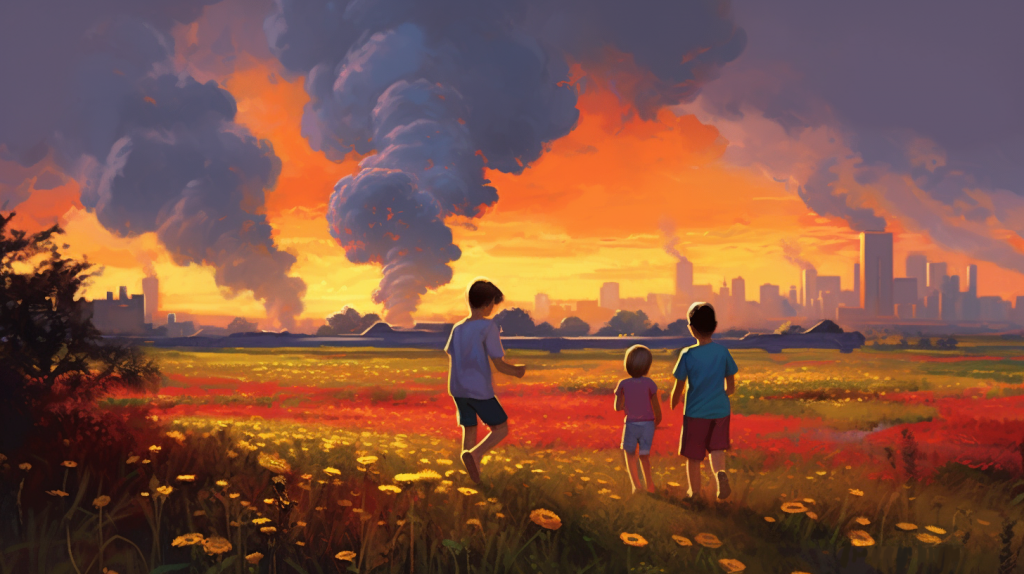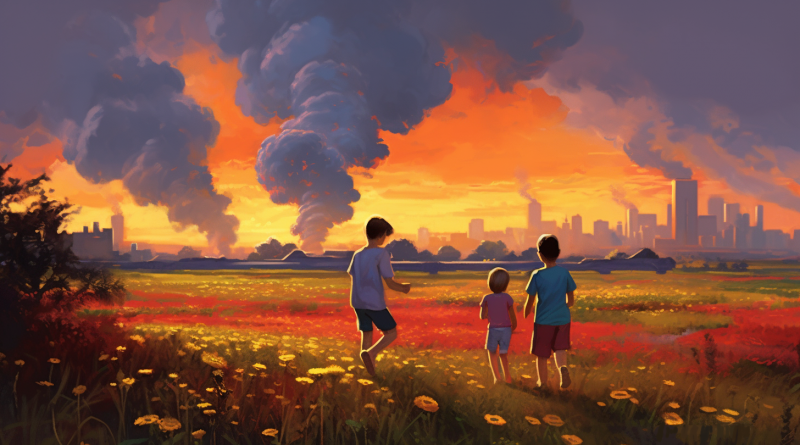Book Review: A Children’s Bible, by Lydia Millet
On the return flight from Iceland, while pondering questions of existential dread and the future of the world, I started and finished Lydia Millet’s A Children’s Bible. The book starts out making you think that it’s going to be an irreverent, funny coming-of-age story, until it completely goes off the rails about a third of the way through. You get some inklings of this at the very beginning, with Millet’s narrator casually dropping some particularly dark musings on things like the relationship between an innocent wild deer and a hunter, for example. But what’s particularly interesting about the book in terms of the coming-of-age story is that it’s a collective coming-of-age, rather than an individual one.

This post contains spoilers, but you definitely need to read the book anyway!
Millet’s book traces the misadventures of a group of teenagers spending the summer in a rented country house in Rhode Island. They exist in a state of moody and intrepid summer bliss, in which they seem to enjoy a faintly egalitarian existence, hating themselves and each other equally, while enjoying a defined but tenuous definition of a summertime reality mostly centered around disconnecting from their parents, who are portrayed as somewhat absent, emotionally distant members of the haute bourgeoisie and nouveau riche. If you start with zero knowledge of the novel, it sounds like it’s going to be a slightly more witty commentary on teenaged experimentation with sex, drugs, and rebellion.
However, catastrophe strikes. We receive foreshadowing of this early on through a side commentary by a minor character, a yacht rich kid who is all about how his parents have built a climate catastrophe-proof compound for the inevitable collapse of society. The catastrophe derails the rigid (but largely purposeless) social order imposed by the parents, and the children are forced to develop their own systems of leadership, although it’s notable that this isn’t quite Lord of the Flies in that it explores a somewhat more nuanced interpretation of things like gender identity, sexuality, and sibling love, in comparison to William Golding’s portrayal of a group of desperate boys just unrepentantly beating the crap out of each other because that’s what boys do, we suppose.
Over the course of the novel, and beginning in the beforetimes, we see the parents grapple variously with boredom, purposelessness, substance abuse, pointless infidelities and sexual hedonism, and in the latter part of the novel post-catastrophe, debilitating illness (from which they eventually recover), while the children are off on their own adventures. The children get themselves into a harrowing ordeal that involves, variously, a compassionate, wealthy, and mysterious older woman with a flair for the dramatic, a gaggle of not terribly impressively written secummemmit types, a group of (presumably twenty-something) intrepid Appalachian Trail hikers, and even a hapless teenage burger flipper, for whom there is even some salvation in the end.
I’ll skip rehashing the entire plot, save to mention that Millet does a great job of portraying the complexity of human relationships and power structures, not just in terms of leaders, but also in terms of followers who sometimes follow the wrong thing but not for the wrong reasons. This is a vital thing for us to remember in climate discourse, because we often demand more ideological purity than we should. Liberals suck at challenging power structures, conservatives don’t believe in climate change, and scientists, left or right (probably mostly left, because most conservatives don’t seem to believe in science), don’t really have a whole lot of power. I just got grief from one of my readers the other day, for example, for posting about taking a trip that required me to fly somewhere. The hypocrisy! I’m here to tell you that it’s not always about demanding ideological perfection: it’s about having an objective and being compassionate to the people with whom you collaborate.
Wielka Woda: Climate Future Through Historical Fiction
In a final metaphor that would feel clumsy if it weren’t so perfect, the parents eventually seem to abdicate all of their responsibility to the children, as they did to the society itself (of which the children directly accuse them). The conclusion– which is fairly abstract- is hopeful, but, certainly referencing the demise of the older generation, feels thoroughly Thunbergian in this regard. But Millet isn’t writing doom-and-gloom climate fiction, which was what I thought of Sequoia Nagamatsu’s How High We Go In The Dark (2022). Interesting though I found that novel and its well-woven storylines, it seemed not to tug at the heartstrings, but more strain the heartstrings. Millet, in providing a primary generational contrast between the children and their parents, especially setting up the complete apathy and naïvete of the older generation, makes us believe that the kids are, in fact, all right.


